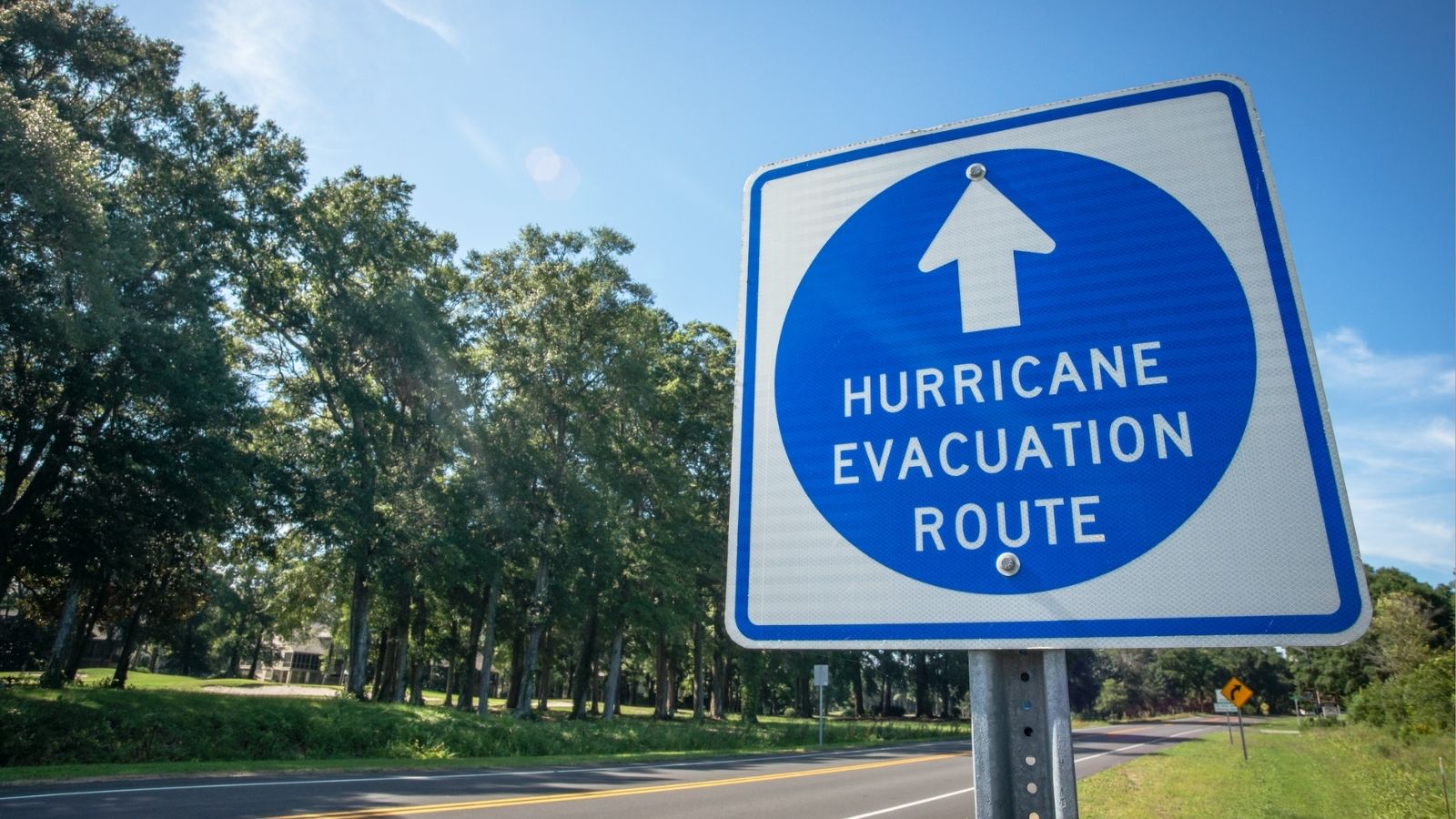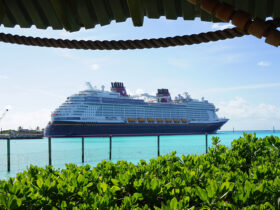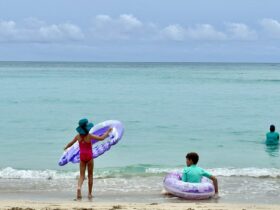Say the words summer vacation and thoughts of lounging on the beach or splashing in the pool probably come to mind. Summer is a time to rest, relax, and recharge. But in some parts of North America—including Mexico, the Caribbean, and the Atlantic and Gulf coasts in the U.S.—summer trips to many of the most popular family vacation spots also have the potential to be impacted by a storm right when you might be hoping to visit.
Hurricane Season Travel Tips: Mexico, Caribbean, More
Hurricane season in the Atlantic basin runs from June 1 to November 30, but there’s no need to skip your summer or fall vacation as long as you plan ahead for possible hurricane-related scenarios.
“It’s really important to be proactive when dealing with these kinds of situations,” says Jonathan Porter, Chief Meteorologist for AccuWeather. “Know the risks for any particular community and know when you’re going to take action. That enables you to be better informed, more resilient, and have a safe and good vacation.”
I spoke with hurricane season travel experts like Porter and others to get their best tips and advice for traveling during hurricane season.
SUN AND SAND: 11 Caribbean Vacations That Have Something for Everyone in the Family
1. Be Smart about Where You Stay and How You Book
If you’re planning a vacation during hurricane season and traveling to a particularly active area for storms, working with a travel agent can be invaluable, says Paula Twidale, Senior Vice President of travel for AAA. “Travel agents can be your best advocate by not only helping you through the booking process, but also helping you to rebook and take care of you when things go wrong.”
NO PASSPORT NEEDED: 17 Best All-Inclusive Resorts in the U.S. for Families
Opting for a hotel versus a rental home can sometimes be a smart choice as well, since hotels in hurricane zones are likely to have a plan for weathering storms—including plenty of staff on hand to offer assistance and safety equipment like backup generators to keep things running if the power goes out. “Understand where the property is geographically and if it’s above sea level or not,” advises Twiddle. “If it’s at or not quite at sea level, you really want to be on the fifth floor or above for flooding purposes.”
2. Keep an Eye on the Weather Forecast
A reliable weather app can help you stay informed about tropical storms and hurricanes before and during your trip. AccuWeather’s app, for example, offers a hurricane tracker that shows where the storm is, where it’s heading, and what its impact might be.
BEACH DAY: 11 Beach Essentials You Need for Every Sun-Soaked Vacation
“If you see a hurricane on the horizon that may impact your travel, start contacting your airline, rental car company, and hotel to find out if you may need to change something,” says Keri Baugh, a travel writer who runs the family travel blog Bon Voyage With Kids. “If you wait too long, you may be behind all of the other travelers who rebooked their flights or got rental cars.”
3. Be Ready for Anything
Some hotels are located in mandatory evacuation zones, but you don’t need to be told to leave in order to decide to pack up. “If you’re uncomfortable with what you’re seeing in terms of risk, that’s the time to leave,” says Porter from AccuWeather. “The earlier you can get out during a serious hurricane threat, you might be able to move your vacation to another location and still have a good time [safely away from the impacted area].”
SOUTH OF THE BORDER: 11 Best Mexico All-Inclusive Resorts for Families
Prepare for the possibility that things could deviate from your intended itinerary, too. “Have a [backup] plan for how you might leave,” says Nicole Hunter, founder of the travel blog Go Far Grow Close. “For example, if you are flying into and out of Florida, make sure you know where rental car agencies are located [in case] you have to drive instead of taking your flight.”
If you’re taking a family cruise, know that flexibility might be required. “In most cases, cruise ships will adjust their routing as necessary to avoid hurricanes [but] This may involve missing a port call (or multiple port calls) to sail out of danger,” says cruise expert David Yeskel, who goes by the Twitter handle The Cruise Guru.
4. Think about Purchasing Trip Insurance
“Weather is unpredictable, and what many travelers don’t know is that once a hurricane impacting one’s destination is identified and named, it’s too late to purchase travel insurance,” says Daniel Durazo, Director of External Communications at Allianz Partners USA. Buying travel insurance as soon as you book your trip is the best way to protect your travel investment during hurricane season.
There’s a lot to consider when buying trip insurance for hurricane season. Do you want coverage in the event that your hotel or vacation rental is made uninhabitable by a storm? Do you want a policy that allows you to cancel for any reason? Companies such as InsureMyTrip can help you answer those questions and select the right policy for your trip.
FIND YOUR CHILL: Hate the Cold? These 11 Winter Vacation Ideas Might Change Your Mind
“People think [travel insurance] costs a lot and is not worth it, because 99 percent of the time they don’t use it,” says Abraham Pizam, PhD, Founding Dean of the Rosen College of Hospitality Management at the University of Central Florida. But Pizam says trip insurance is typically about 10 to 20 percent of the overall cost of a vacation, and it’s worth every penny when you do need it. “It’s a necessity, not a luxury,” he advises.
And if you do experience a flight delay or an interruption of your trip? “Make sure to save the receipts or any other paperwork that may come in handy during a claim,” says Meghan Walch, Director of Product for InsureMyTrip.
5. Stay Safe
Riding out a storm often isn’t the best-case scenario. “Dealing with a hurricane landfall, especially if you’re not familiar with hurricanes, is not something to aspire to,” says Porter. “It’s not pleasant to be in a place after a hurricane landfall has happened.” You could be dealing with power outages and major damage to property and local infrastructure, and many of the things you want to do on your vacation are going to be significantly altered.
LEAVE THE KIDS: 10 Best Adults-Only All-Inclusive Caribbean Resorts for Couples
But there may be cases where you’re not able to get out ahead of a storm. “If you’re on vacation when a hurricane might come through, take it seriously,” says Bon Voyage With Kids’ Baugh, who advises getting supplies like water, nonperishable foods, flashlights, and batteries, and charging all of your electronics fully before the storm arrives.
More from FamilyVacationist:
- How to Avoid Long Airport Lines at Check-in, Security, Customs
- How Early Should You Get to the Airport?
- What You Should Know Before Booking a Flight for an Unaccompanied Minor












